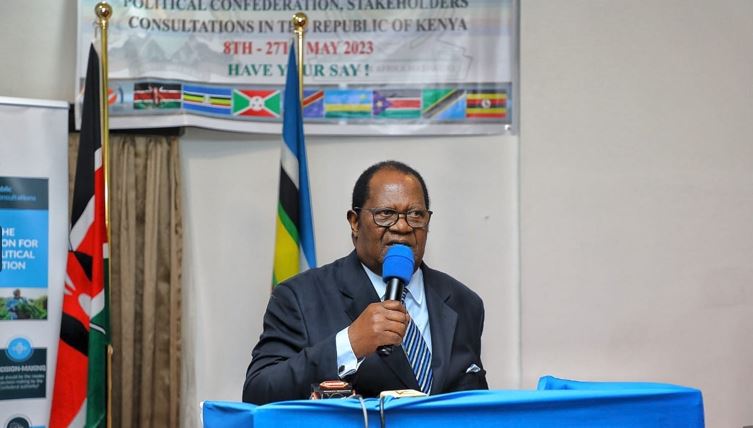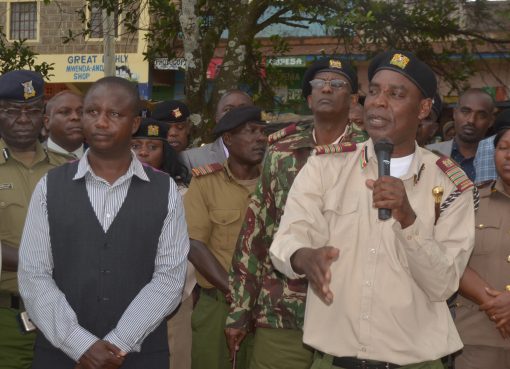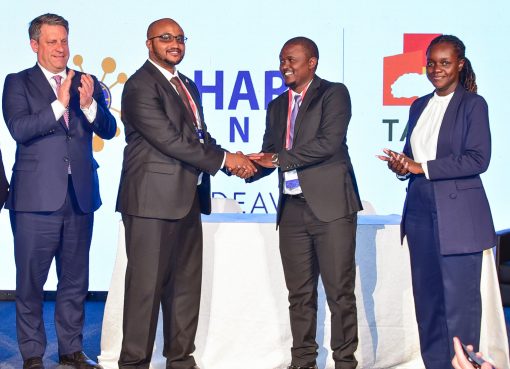Kenya is bound to realize more economic benefits with deepened regional integration and free trade in East Africa.
Fostering social and political integration within the East African Community (EAC) is set to boost economic growth, with border counties earmarked for major development following the implementation of the proposed confederation model.
Former Attorney General Amos Wako made the remarks during a stakeholders’ consultation on drafting the EAC Political Confederation Constitution held in Kisumu on Thursday.
Wako, who is also the Deputy Chairperson of the Constitutional Experts Committee, assured that the Confederation would significantly address regional economic imbalances by advancing mutual benefit for member states.
“To progressively transform EAC into a smooth operating common market, a confederation helps to iron out the tariff barriers and different policies between partner states, among other challenges,” he said.
The team of regional eminent constitutional experts, under the stewardship of retired Ugandan Chief Justice Benjamin Odoki, engaged delegates representing civil societies, opinion leaders, special interest groups, and the business community to gather views on the desired framework for establishing the EAC Political Confederation.
Justice Odoki said that the proposed confederation targets strengthening cooperation ties and fast-tracking the integration process in the East African bloc.
Further, he disclosed that under a confederal system, some kind of central authority would be put in place to guide policies and activities in the partner states.
“The idea was to strengthen the community through a confederation where each country retains its sovereignty but would cede part of its powers to the central authority. This is a transitional model to transform EAC into a political federation enshrined in the treaty as the pinnacle of the integration process,” the retired Chief Justice noted.
The political federation, Justice Odoki added, would form a single state for the region, governed by a stronger secretariat or a commission that is vested with supreme powers to hold partner governments together for prosperity.
“Having one state is beneficial since it makes it easier to effectively control the entire region in terms of security and infrastructure development,” he stated.
According to the chairperson, the public consultation process is set to run up to mid-2024 before the committee retreats to the draft constitution.
Subsequently, Justice Odoki’s committee, upon completing drafting the regional constitution, will present a bill to the EAC Heads of State Summit for validation.
“We have held stakeholder consultation sessions in Uganda, Burundi, and now in Kenya. This year, the committee intends to finalize the exercise in Tanzania and Rwanda,” stated Mr. Wako, adding that South Sudan and the Democratic Republic of Congo are slated for early next year.
By Robert Ojwang’




